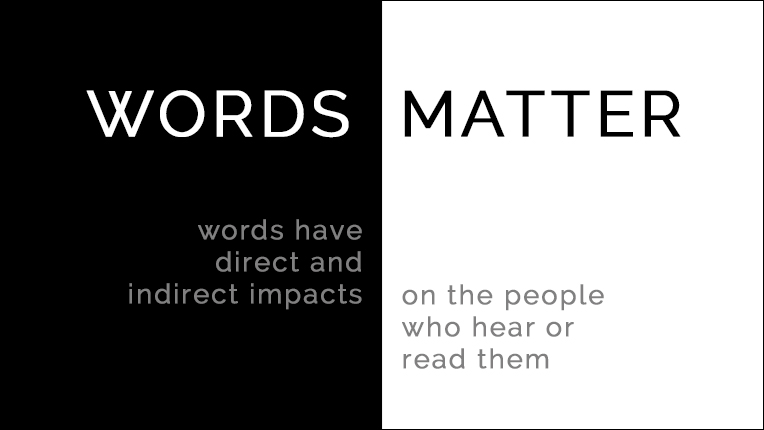ACM Celebrates Women's History Month, March 2023
"What's Changed Post-Pandemic? A Conversation With Women in Computing."
The pandemic has fueled many changes—from the way we work to how big a role we allow technology to play in our life. Research also shows that the past three years have affected women in the workforce particularly hard. How has it been for women in computing? View the in-depth panel conversation on demand, "What's Changed Post-Pandemic? A Conversation With Women in Computing," featuring Jocelyn Simmonds, Jen Lamere, Yasmine Elglaly, and Hemangee Kapoor, moderated by Gloria Childress Townsend.
Moderator
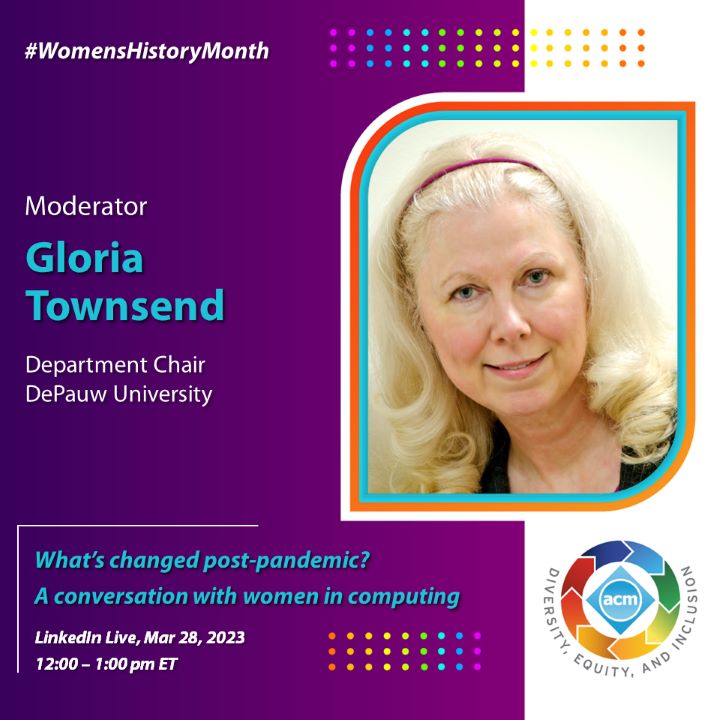
Gloria Childress Townsend chairs the Department of Computer Science at DePauw University. She founded ACM Celebrations and chaired the ACM-W Chapters project during her seventeen-year tenure with ACM's Council on Women in Computing. Both SIGCSE and her graduate school, Indiana University Bloomington's School of Informatics, awarded Townsend their Lifetime Service Awards for this work. Her research interests include evolutionary computation and gender issues in computing.
Panelists
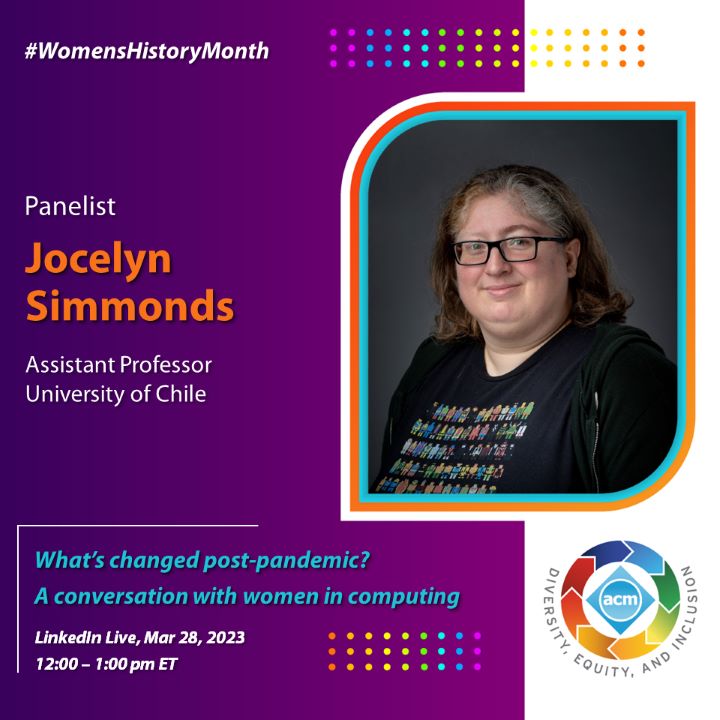
Jocelyn Simmonds is an Assistant Professor at the Computer Science Department, University of Chile since 2014. She received her Ph.D. in Computer Science from the University of Toronto, Canada, her M.Sc. in Computer Science from the Vrije Universiteit Brussel, Belgium, and her Engineering degree from the University of Chile. Her research interests are in the area of software engineering, such as model-driven development, software product lines, and web development. She has also led the creation and evaluation of initiatives that seek to make computer science more diverse and inclusive, focusing especially on helping K-12 students and professors develop computational thinking skills, and improving the participation of women in computing. During 2011, she co-founded the Chilean Women in Computing group, and in 2015 she co-founded LAtINiTY, the first Latin American conference for women in technology.
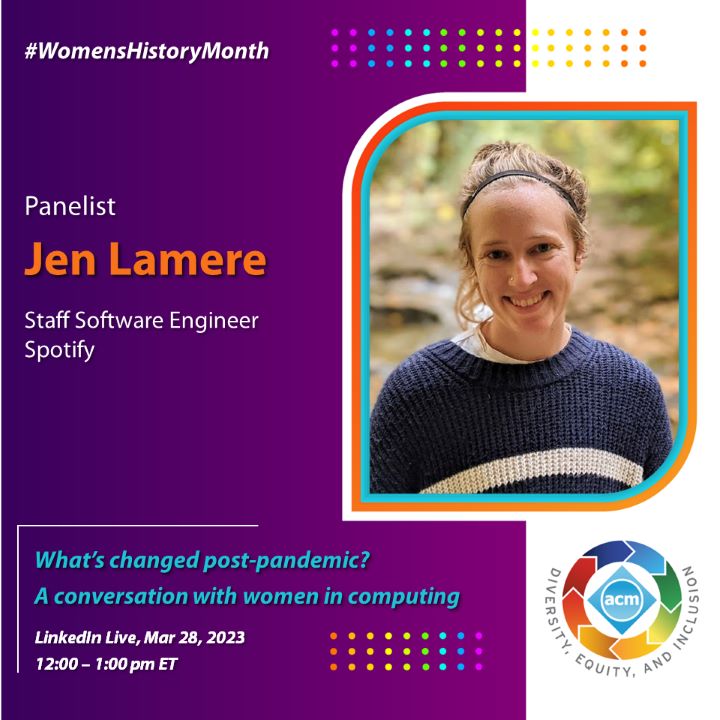
Jen Lamare is a Staff Software Engineer working at Spotify, where she builds personalized listening experiences. She graduated from RIT with a degree in Computer Science in 2017.
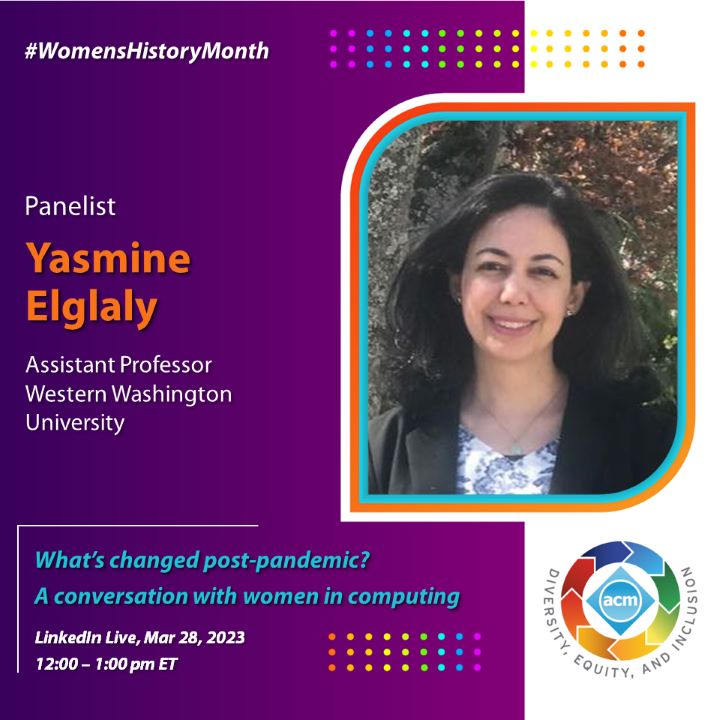
Yasmine Elglaly is an assistant professor of computer science (CS) at Western Washington University (WWU). She earned her Ph.D. degree in CS from Virginia Tech, where she worked closely with blind students and blind scholars on the accessibility of touch screens for reading and studying purposes. She has founded the KIND (Komputing for INclusion, and Disability) lab at WWU that focuses on accessible computing research. Dr. Elglaly, with her students and collaborators, investigates how software development tools may better support the creation of accessible websites and mobile apps. She also studies the various ways of teaching accessibility to graduate as well as undergraduate computing students, and the inclusion of accessibility knowledge in fundamental computer science courses. Her work can be found at ResearchGate. Elglaly serves as the director of the CS Distinguished Scholar pr-->{C}
ACM Celebrates Diversity in Computing & Technology
At ACM, our commitment to diversity, inclusion, and equity is fundamental to our mission. Diverse perspectives, backgrounds, and experiences enrich the ACM community and strengthen ACM’s ability to support the computing communities globally. By acknowledging and celebrating the unique qualities of diverse membership, ACM cultivates an inclusive environment where all are supported and empowered to inspire and assist others. Awareness months are a time dedicated to reflection, education, and engagement to understand and embrace the diverse backgrounds within the ACM community. We invite you to join ACM in these celebrations as we strive to create inclusive and equitable environments for all within the computing community.
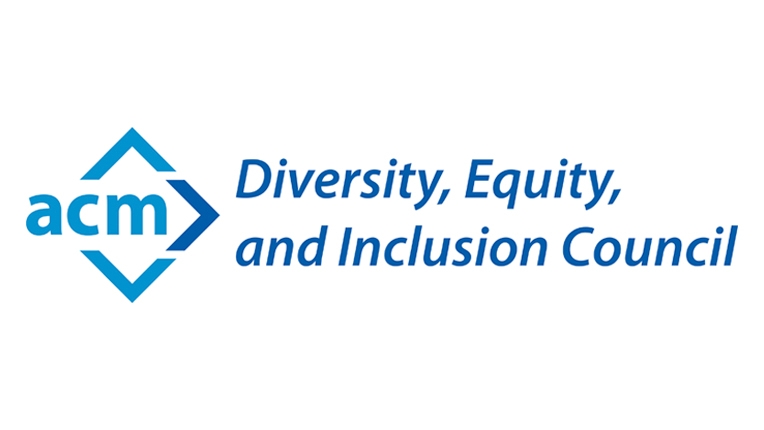
How Diverse Is Your Team?
ACM's Diversity, Equity, and Inclusion Council is an essential resource for SIGs, conferences, boards, and councils looking for best practices to improve diversity in their organization and develop programs with a broader reach in the computing community. Our guide provides examples of both inherent and acquired characteristics, which should be taken into consideration when looking at ways to improve the diversity of your team.

Words Matter
As part of ACM’s efforts to combat exclusion in the computing profession, ACM's Diversity, Equity, and Inclusion Council has launched an effort to replace offensive or exclusionary terminology in the computing field. They have developed a list of computing terms to be avoided in professional writing and presentations and offer alternative language. The Council plans to expand this list in the future and invites the community to submit suggestions for consideration.
